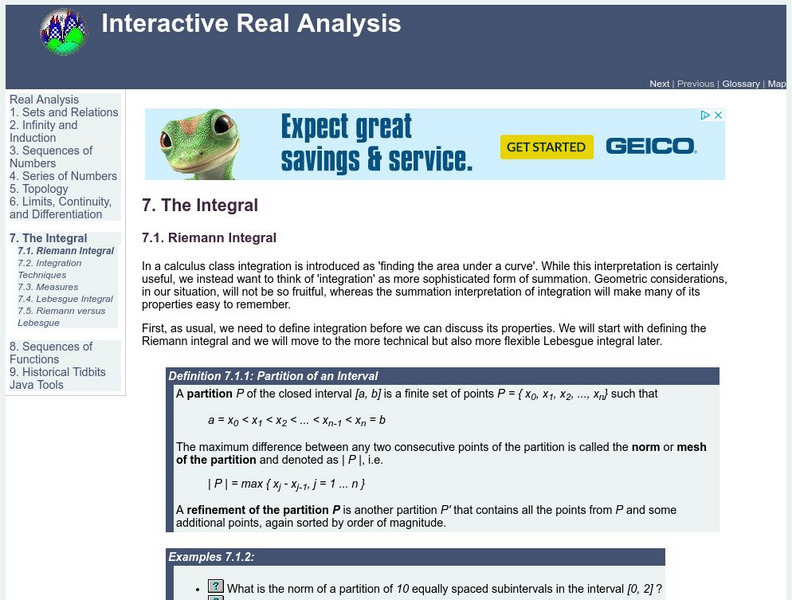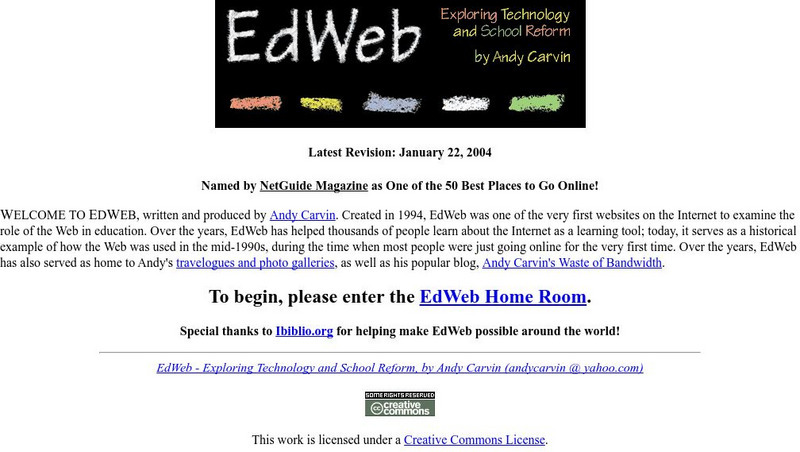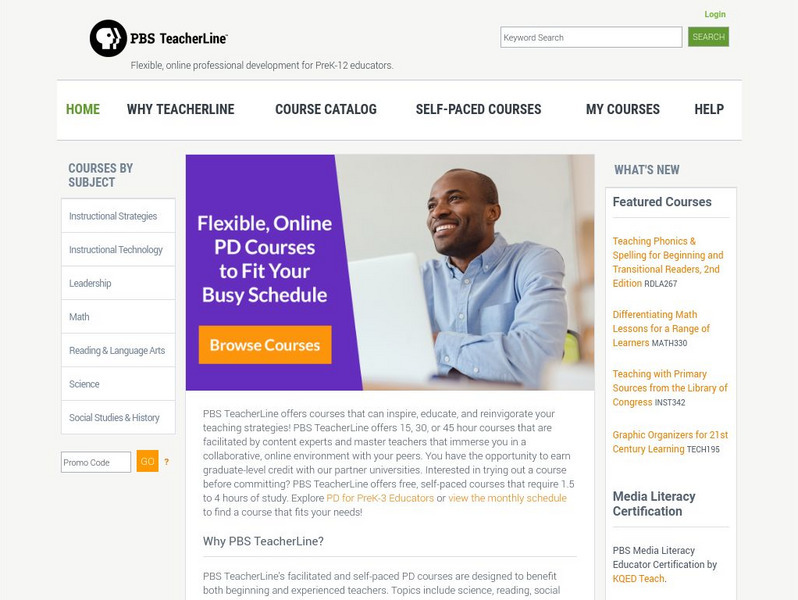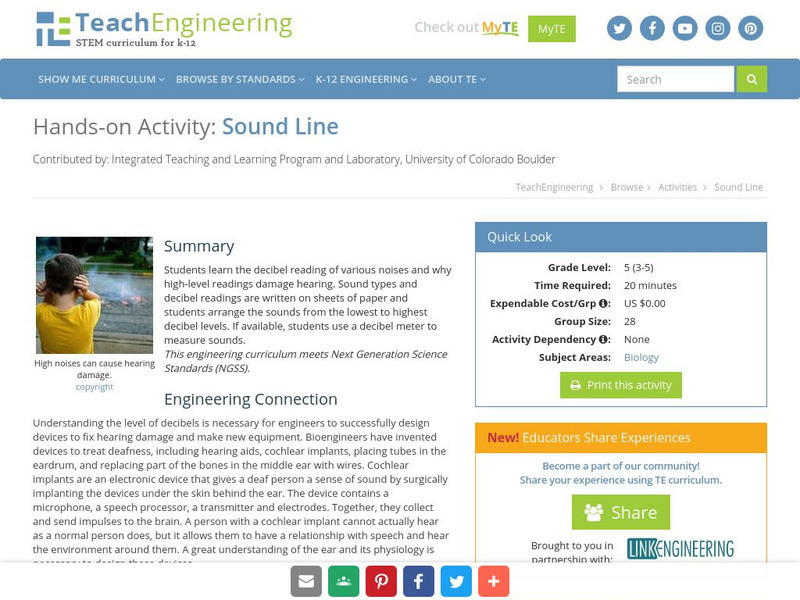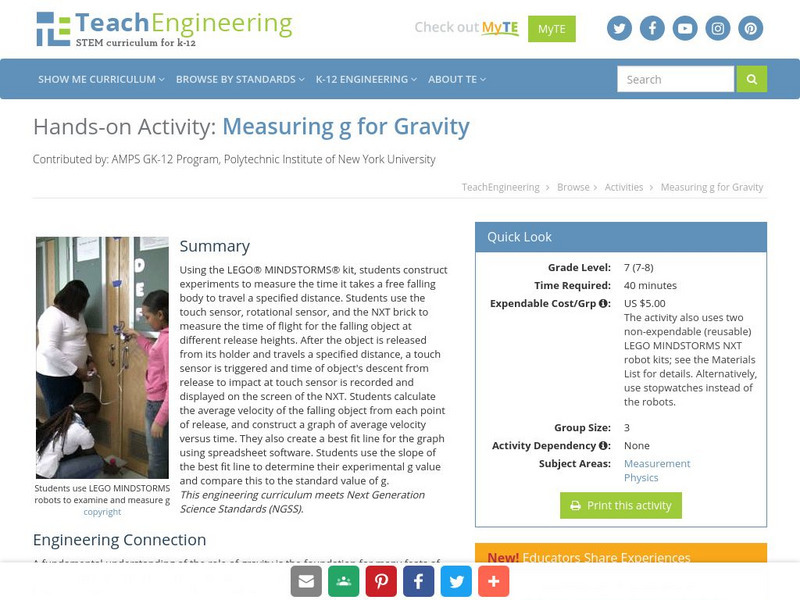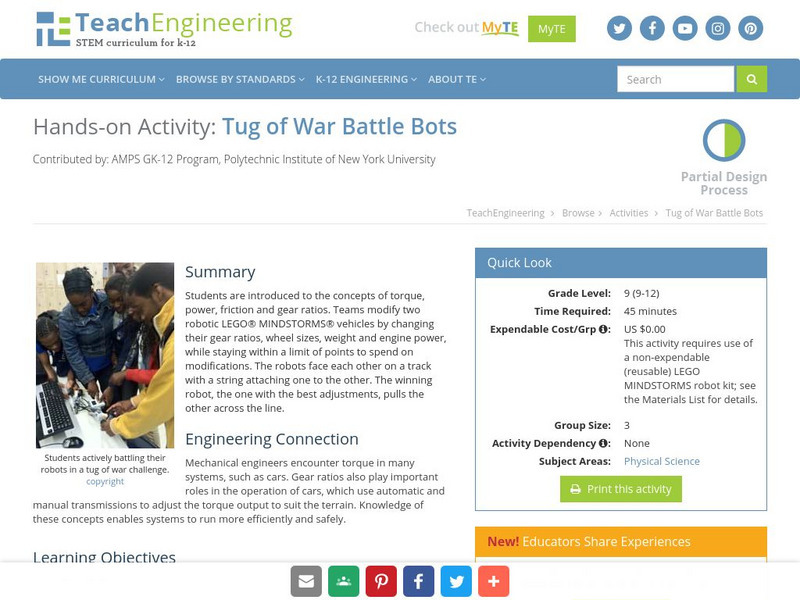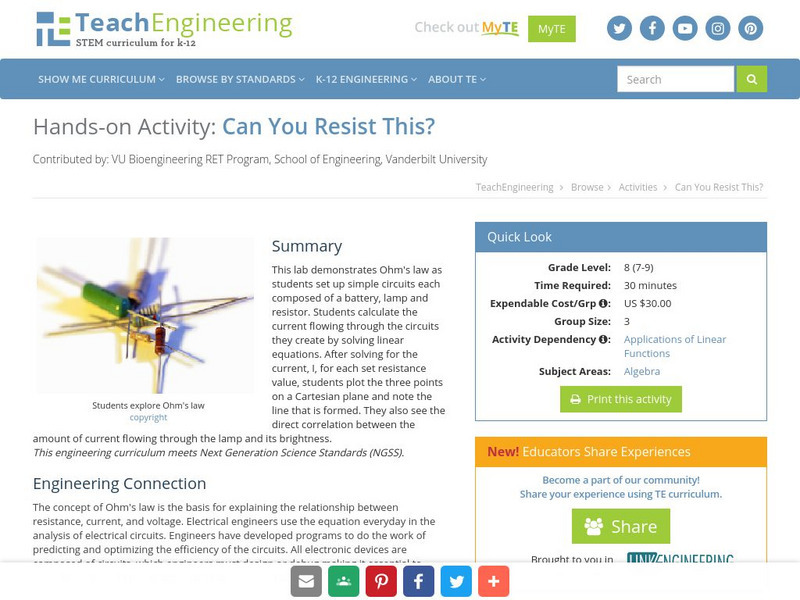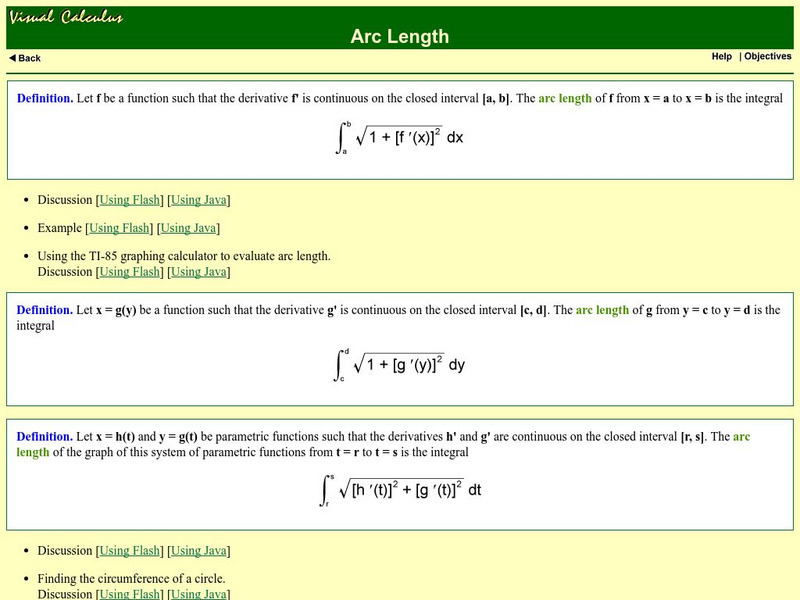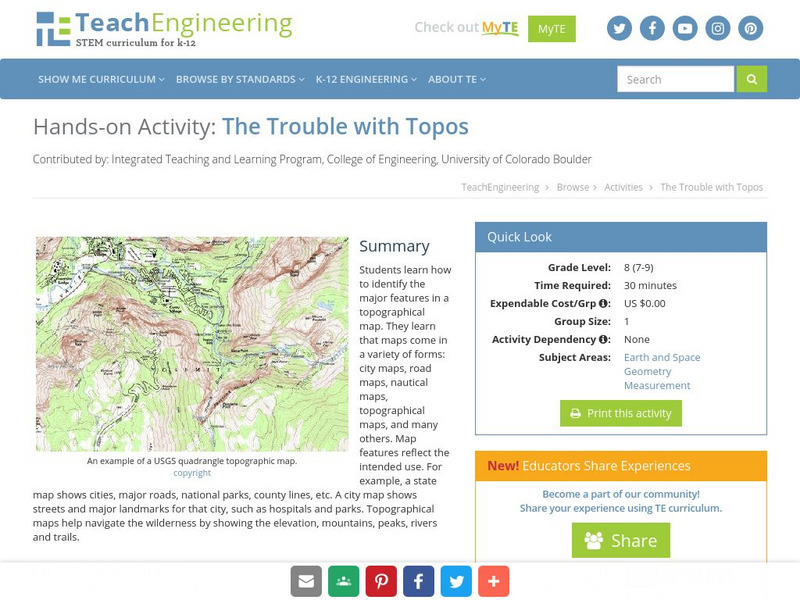Other
Seton Hall University: Riemann Integral
On-line tutorial explaining the Riemann Integral. Gives good diagrams, charts, and examples.
PBS
Pbs: The Number Line: Rational Numbers and Football
In this interactive, students add and subtract plays on a football field to practice working with negative and positive integers on the number line. Each set of randomized drives consists of seven to nine plays and ends with a touchdown....
TeachEngineering
Teach Engineering: The Electric and Magnetic Personalities of Mr. Maxwell
Students are briefly introduced to Maxwell's equations and their significance to phenomena associated with electricity and magnetism. Basic concepts such as current, electricity and field lines are covered and reinforced. Through...
Other
Ed Web: Homepage
EdWeb explores educational reform and information technology. "With EdWeb, you can hunt down on-line educational resources around the world, learn about trends in education policy and information infrastructure development, examine...
Other
Ed Web: Homepage
EdWeb explores educational reform and information technology. "With EdWeb, you can hunt down on-line educational resources around the world, learn about trends in education policy and information infrastructure development, examine...
ArtsNow
Arts Now Learning: Using Movement and Dance to Explore Symmetry [Pdf]
In this instructional activity, 3rd graders first examine images and decide whether they are symmetrical or not. Next, they create individual symmetrical shapes with their bodies and identify the line of symmetry present during these...
PBS
Pbs Teacher Line: Professional Development for Educators
PBS TeacherLine offers a wide range of professional development courses and resources to help teachers acquire the skills they need. Through this site you can explore courses in your area, facilitated discussions with teachers across the...
TeachEngineering
Teach Engineering: Sound Line
Students learn the decibel reading of various noises and why high-level readings damage hearing. Sound types and decibel readings are written on sheets of paper, and students arrange the sounds from the lowest to highest decibel levels....
Hofstra University
Hofstra University: Calculus Applied to the Real World
This is a very nice layout of information relative to Calculus. The page is divided into various topics each containing a quiz over the material, topic summary, review problems, and on line tools to help with the topic. The topics of the...
TeachEngineering
Teach Engineering: Graphing Equations on the Cartesian Plane: Slope
The lesson teaches students about an important characteristic of lines: their slopes. Slope can be determined either in graphical or algebraic form. Slope can also be described as positive, negative, zero or undefined. Students get an...
Other
Harvard University: Project Zero: Artful Thinking
Find engaging ways to integrate visual art and music into regular classroom instruction and strengthen cognitive thinking skills and abilities to reason creatively from multiple perspectives. Get great classroom questioning tips, case...
TeachEngineering
Teach Engineering: A Lego Introduction to Graphing
Students use a LEGO ball shooter to demonstrate and analyze the motion of a projectile through use of a line graph. This activity involves using a method of data organization and trend observation with respect to dynamic experimentation...
TeachEngineering
Teach Engineering: Measuring G
Using the LEGO MINDSTORMS NXT kit, students construct experiments to measure the time it takes a free falling body to travel a specified distance. Students use the touch sensor, rotational sensor, and the NXT brick to measure the time of...
TeachEngineering
Teach Engineering: Tug of War Battle Bots
Students are introduced to the concepts of torque, power, friction and gear ratios. Teams modify two robotic LEGO vehicles by changing their gear ratios, wheel sizes, weight and engine power, while staying within a limit of points to...
TeachEngineering
Teach Engineering: Drawing Magnetic Fields
Students use a compass and a permanent magnet to trace the magnetic field lines produced by the magnet. By positioning the compass in enough spots around the magnet, the overall magnet field will be evident from the collection of arrows...
TeachEngineering
Teach Engineering: Circuits and Magnetic Fields
In this activity, students use the same method as in the activity from lesson 2 to explore the magnetism due to electric current instead of a permanent magnet. Students use a compass and circuit to trace the magnetic field lines induced...
TeachEngineering
Teach Engineering: Can You Resist This?
This lab demonstrates Ohm's law as students set up simple circuits each composed of a battery, lamp and resistor. Students calculate the current flowing through the circuits they create by solving linear equations. After solving for the...
TeachEngineering
Teach Engineering: Conduction, Convection, and Radiation
With the help of simple, teacher-led demonstration activities, students learn the basic concepts of heat transfer by means of conduction, convection, and radiation. Students then apply these concepts as they work in teams to solve two...
TeachEngineering
Teach Engineering: Pictures Please: Traveling Light
In this lesson, students learn that light travels in a straight line from a light source and that ray diagrams help us understand how an image will be created by a lens. In the accompanying activity, students explore the concepts behind...
TeachEngineering
Teach Engineering: Linear Regression of Bmd Scanners
Students complete an exercise showing logarithmic relationships and examine how to find the linear regression of data that does not seem linear upon initial examination. They relate number of BMD scanners to time.
Mathematics Archives
Math Archives: Visual Calculus: Arc Length
This site explains the arc length. The site has links to related topics and examples.
Houghton Mifflin Harcourt
Houghton Mifflin Harcourt: Saxon Activity Center Real World Investigation: Symmetry Around Us [Pdf]
Use this internet lesson to explore different types of symmetry in nature. Learners examine line symmetry, rotational symmetry, and bilateral symmetry. An integrated math, language art, and art lesson. Acrobat Reader required.
PBS
Pbs Mathline: Button, Button Lesson Plan [Pdf]
An integrated math and language arts lesson focusing on statistics. Students explore the concepts of estimation, data collection, data analysis, classification, graphing, and counting through the reading of the Button Box by Margarette...
TeachEngineering
Teach Engineering: The Trouble With Topos
Students learn how to identify the major features in a topographical map. They learn that maps come in a variety of forms: city maps, road maps, nautical maps, topographical maps, and many others. Map features reflect the intended use....
